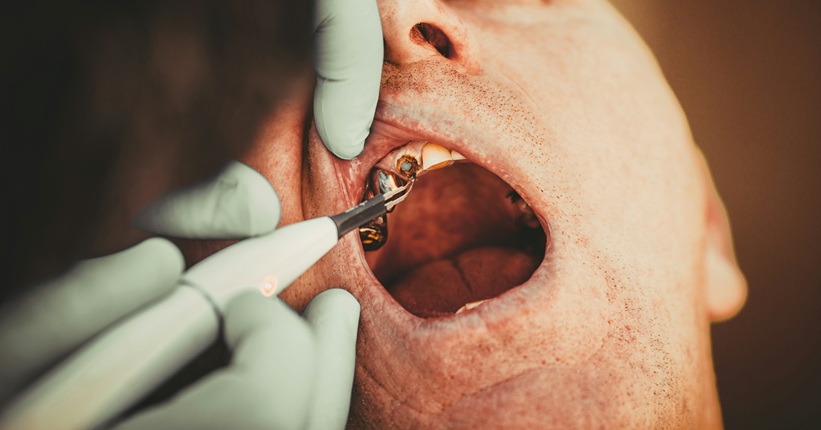
What not to do after inserting dental implants?
The insertion of dental implants is one of the greatest achievements of modern dentistry, offering a long-lasting and aesthetic solution for people with dental deficiencies. Although this technology opens the door to a new quality of life and self-confidence, it is important for patients to be aware that the success of this venture depends to a large extent on their actions in the postoperative period. Proper care and avoidance of certain activities are crucial to ensure optimal healing, integration of the implant into the bone, and the long-term durability and functionality of implants. In this text we will look at the actions and habits that should be avoided after the insertion of dental implants so that the new smile is not only beautiful, but also healthy and lasts for many years.
Avoid hard foods
Avoiding hard foods after dental implants are installed is important for several reasons, which relate both directly to the postoperative period and long-term care of the implants:
- Protection against damage during the healing period Implants take time to integrate into the jaw bone, this process is called osteointegration. Eating hard foods can disrupt this process, potentially causing the implant to move and disrupt its proper adhesion. Immediately after the operation, the tissues around the implant are sensitive and heal. Eating hard or sharp foods can cause additional irritation or even damage to this delicate area.
- Protection against mechanical damage — even after complete healing, hard food can pose a risk to implants and crowns placed on them. Too much chewing forces can cause cracks or fractures of the crowns, as well as negatively affect the connection of the implant to the bone.
- Durability of implants — although implants are designed for long-term use and made of damage-resistant materials, they are not indestructible. Avoiding hard foods helps keep them in good condition for many years.
- Prevention of complications Eating hard foods increases the risk of complications such as the crown detaching from the implant, which may require additional dental intervention.
- Patient comfort Eating hard foods can cause discomfort or pain, especially in the initial period after implant placement, when the area is still sensitive.
Ultimately, avoiding hard foods is a preventative measure aimed at protecting the patient's investment in dental implants and ensuring trouble-free healing and long-term implant functionality.
Avoid consuming sticky foods
After the insertion of dental implants, it is recommended to avoid the consumption of sticky foods, mainly for several reasons related to the safety of the implant, the healing process and general oral hygiene:
- Risk of implant displacement In the initial period after surgery, when the implant is not yet fully integrated into the jaw bone (osseointegration process), eating sticky foods can lead to implant displacement. This situation can disrupt the healing process and increase the risk of implantation failure.
- Implant load — sticky or extremely hard foods can put additional stress on the implant and surrounding bone tissue and gums, which can lead to damage or destabilisation of the implant before it is fully integrated into the bone.
- Difficulty maintaining hygiene — sticky foods are more difficult to remove from the implant area, which promotes the growth of bacteria and the formation of plaque. This increases the risk of gingivitis and other periodontal problems, such as peri-implantitis, which can compromise the durability and health of the implant.
- Prevention of mechanical damage — sticky foods can damage temporary crowns or other prosthetic structures used during implant healing. These damages may require repair or replacement, which is associated with additional costs and lengthening of treatment.
For these reasons, in the period immediately after surgery and during healing, it is recommended to eat soft foods that do not require intensive biting and are easily removed during daily oral hygiene. It is also worth regularly visiting a dentist or maxillofacial surgeon, who monitors the healing process and adjusts dietary recommendations to the progress of treatment.
Quit or limit cigarette smoking
Smoking has a number of negative effects on health, and in the context of dental implants, its impact is particularly harmful for several reasons:
- Delay of healing Smoking significantly delays the healing process. Chemicals in tobacco smoke, such as nicotine, carbon monoxide and tar, limit blood flow to the tissues of the mouth, making it difficult to deliver the nutrients and oxygen necessary for recovery. This leads to an extended recovery period after implant placement.
- Increased risk of infection Smoking increases the risk of infection around the implant. Reduced blood flow makes it difficult for the body to fight bacteria, which can result in infection and even rejection of the implant.
- Osteointegration disorder — the process of adhesion of the implant to the bone is crucial for the stability and success of implantation. Nicotine and other substances contained in tobacco smoke negatively affect the ability of bones to regenerate and form strong connections with the implant.
- Increased risk of gum disease Smokers are more likely to develop gum disease, which can lead to loss of bone supporting the implant, which compromises its stability.
- Weaker long-term results Studies have shown that implant failure rates are higher in smokers than in non-smokers.
For these reasons, dentists and maxillofacial surgeons care that patients stop smoking before surgery and maintain abstinence after surgery, which minimizes the risk of complications and supports proper healing.
Avoiding Harmful Habits
After dental implants are inserted, avoiding harmful habits is crucial for the long-term success of implantation. These habits can negatively affect healing, osseointegration and oral health. An example is bruxism (teeth grinding), which exerts excessive force on implants and surrounding tissues, which can lead to their damage or loss. Patients with bruxism are advised to use special protective splints, especially at night. Maintaining healthy habits and giving up harmful behaviors ensure the comfort and aesthetics of implants for many years.
Avoiding excessive brushing of teeth
After installing dental implants, it is worth avoiding excessive brushing of teeth for several reasons:
- Irritation and damage to the gums Excessive brushing, especially with a hard brush, can irritate and damage the delicate gums around the implant, which are crucial for its stability.
- Exposing the “root” of the implant — aggressive brushing can cause gum recession, exposing part of the implant, which not only looks unsightly, but increases sensitivity and risk of infection.
- Damage to the implant surface — implants have special surfaces that support integration with bone and tissues. Excessive brushing can damage them, affecting the durability and stability of the implant.
- Increased risk of erosion — aggressive brushing can lead to erosion of the materials from which implants or crowns are made, which weakens their strength.
Do not neglect oral hygiene
After inserting implants, it is extremely important to take care of oral hygiene:
- Prevention of infections Implants, like natural teeth, can be an environment for bacteria that cause infections. The most serious threat is peri-implantitis, leading to the loss of the implant.
- Maintaining gum health Healthy gums around the implant ensure its stability. Neglect of hygiene promotes the accumulation of bacterial plaque and stone, which leads to inflammation.
- Longevity of implants Regular removal of plaque and stone prolongs the life of the implants and prevents them from having to be replaced.
- Protecting Neighboring Teeth — implants are resistant to caries, but neglect of hygiene can cause caries in the natural teeth adjacent to the implant.
- General oral health — good hygiene affects the condition of the entire oral cavity, which translates into the health of natural teeth and implants.
It is recommended to brush your teeth at least twice a day, use dental floss or other tools to clean the interdental spaces, regularly visit the dentist and follow the individual recommendations of specialists.
Do not skip the healing stage
The healing stage after the insertion of implants is crucial for the success of the entire procedure:
- Osteointegration — the process of fusion of the implant with the jawbone or mandible, forming a stable base for the crown. It requires several months and avoiding excessive load on the implant.
- Prevention of infections The area around the implant is susceptible to infection. Taking care of cleanliness and avoiding smoking minimizes the risk of infection and accelerates healing.
- Ensuring the stability of the implant Failure to comply with the healing period and loading the implant too early can lead to its destabilization, delay in osseointegration or rejection of the implant.
- Gum health and regeneration — the gums need time to heal and adapt, which ensures a healthy and aesthetic appearance around the implant.
- Optimization of aesthetic and functional results — healing allows for proper formation of gums and bone tissue, which is crucial for aesthetics and function.
Following the recommendations for the healing period, such as avoiding heavy exercise, an adequate diet (avoiding hard foods) and regular check-ups, is essential for the success of implantation. Failure to comply with these rules may result in the need to repeat the procedure or the loss of the implant.
Content author

Dr. Wojciech Gącienica-Ciułacz
Dr. Wojciech Gącienica-Ciułacz is a dentist for whom dentistry is a true vocation. In his practice, he stands out for his extraordinary ability to listen carefully to patients, thanks to which he is able to precisely adjust the treatment plan to the individual needs and expectations of each person. His approach is based on the deep conviction that effective dental therapy must take into account not only the medical aspect, but also the comfort and well-being of the patient.

Start treatment already today!
Make an appointment and discover why our patients recommend us to their loved ones. We will take the utmost care of your smile.


